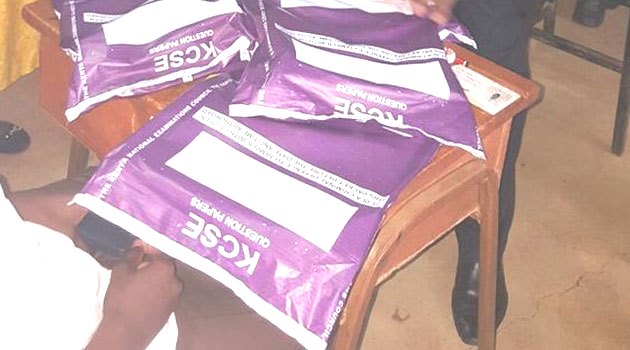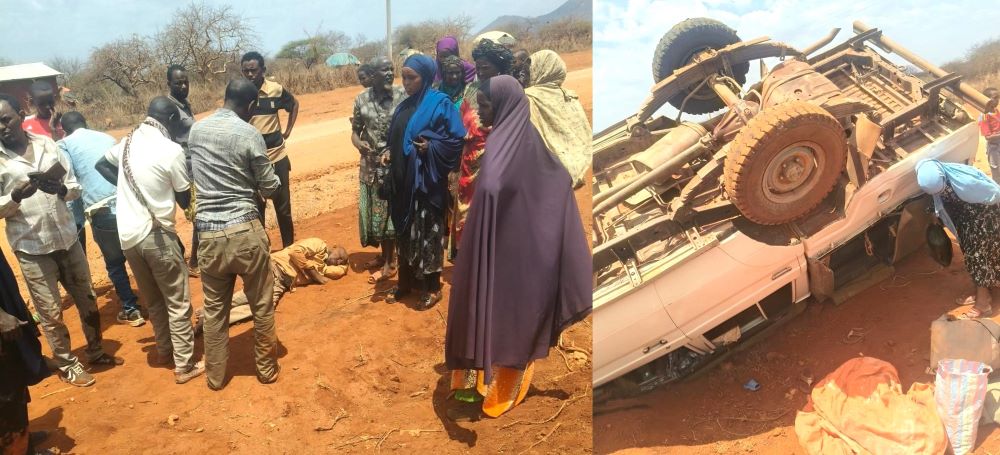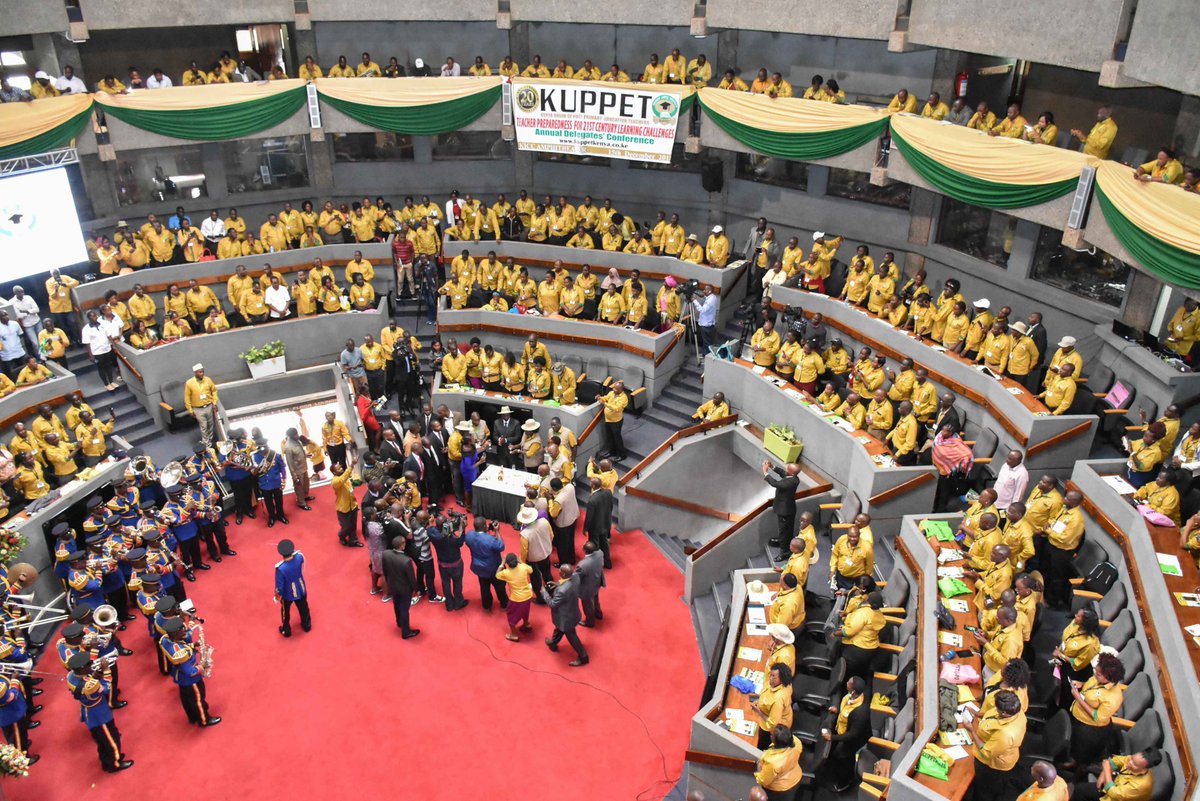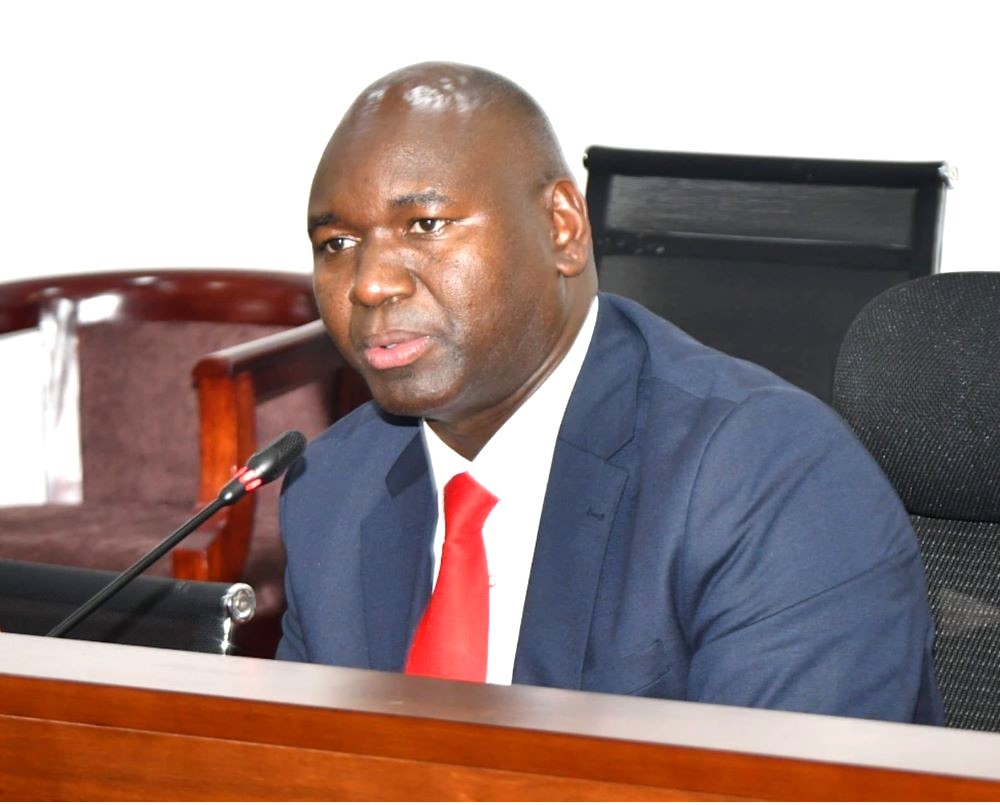Authorities continue to receive numerous alerts that teachers are conducting the Kenya Certificate of Secondary Education (KCSE) examinations for candidates at many centres. Let’s say it as it is: the biggest threat to the credibility of the KCSE examination is not the students – it is the teachers and principals. The rot is happening right inside the examination centres. The epicentre of this crime is the staff quarters, dormitories, laboratories and libraries, where perpetrators are being hosted in cahoots with school principals. No examination paper can leave the exam room without the knowledge of the centre managers, all of whom are school principals. Yes, the problem is within.
The Kenya National Examinations Council (KNEC) should stop focusing solely on external threats and begin paying closer attention to what happens inside schools. The real malpractice is not taking place on the roads or at the distribution centres — it is unfolding quietly within the walls of teachers’ quarters, principals’ houses, dormitories, laboratories and school libraries. That is where the leakages, impersonations, collusions and coordinated cheating are being orchestrated. It is a well-coordinated betrayal by insiders—the very people entrusted to guard the sanctity of our education system.
Every year, KNEC tightens security around examination containers, escort vehicles and distribution points. But what happens once the papers arrive at the school? That’s where the real games begin. Unscrupulous teachers find ways of accessing the papers moments before the exam sessions start. Some have mastered the art of “sneaking a look” at the question papers under the pretext of verifying details or arranging scripts. Others collaborate with compromised invigilators or supervisors to extract copies of papers during distribution or collection. Once a paper leaves the examination room – even for five minutes – it’s enough time for the cartel to spring into action.
Inside teachers’ quarters or staffrooms, the crime scene is set. Teachers gather hurriedly, work out the questions and prepare solutions. In some schools, the activity runs like a factory – one group tackles section A, another handles B, while a third crafts model answers for section C. Typed or handwritten “answers” are then disseminated through clever channels: coded notes, messages scribbled or whispered, and instructions during bathroom breaks.
In certain centres, the entire operation has the efficiency of an organised syndicate. The principal coordinates the scheme, the supervisor pretends not to see, and the invigilators play along. The principal’s house turns into an overnight “marking centre” where teachers, armed with stolen question papers, craft polished answers and distribute them to candidates through trusted prefects or subject heads. Dormitories become illegal briefing halls. The library—the supposed sanctuary of knowledge—becomes a war room for academic crime. The laboratories, meant for practical learning, double up as hideouts for these unethical operations. Teachers’ quarters, intended to be private spaces of rest, become dens of deception—crime scenes.
READ ALSO:
St. Joseph’s Boys’ Gabriel Silali earns call-up to Harambee Stars U-17 Squad
The scale of the malpractice is frightening. When a school that has consistently struggled to produce average results suddenly records 80 per cent A grades, or when a candidate who could barely write a coherent paragraph in English scores straight As, something is wrong. These are not miracles of hard work or divine intervention—they are miracles of organised fraud.
The saddest part is that this betrayal is being carried out by teachers—professionals who once swore to uphold honesty, fairness, and integrity. The teaching profession was built on trust. Teachers were the moral backbone of society, the custodians of conscience. Today, a small but dangerous clique within the profession is trading integrity for instant glory, bribes and public praise.
Principals are equally culpable. Some have turned examination performance into a high-stakes business. Their obsession with rankings, mean scores and national visibility drives them into unethical alliances. They instruct teachers to “do whatever it takes” to deliver results, even if it means breaking the law. Some invite external agents, compromise supervisors or manipulate invigilation rosters to create loopholes. The goal is to please sponsors, boards and political patrons – never mind the cost to the nation’s moral fibre.
Let’s be clear: this rot is not everywhere. Many teachers and principals still uphold integrity. They’re diligent and honest. But the few who have chosen the path of deceit are staining the entire profession. They must be exposed, punished and permanently removed from service.
KNEC and the Ministry of Education must now shift focus. The real malpractice is not between the container and the school gate—it’s within the school gate itself. Surveillance must be enhanced inside examination centres. Monitoring teams should make surprise visits, especially at night, to inspect teachers’ quarters, dormitories, laboratories and libraries. The use of mobile phones by teachers within the compound during examination hours must be strictly prohibited. Principals should remain in their offices during examination sessions, under close supervision by independent monitors.
Accountability must be enforced at every level. Supervisors and invigilators who turn a blind eye to irregularities should face automatic suspension pending investigation. Integrity cannot be shared or outsourced; each officer must carry personal responsibility for what happens under their watch.
Parents and communities, too, must stop glorifying fake results. Stop bribing teachers to “help” your children. Stop celebrating overnight academic miracles that have no foundation in hard work. A stolen grade is not success; it is shame disguised as triumph. The future of your child is too precious to mortgage to corruption.
If this culture continues, Kenya risks losing the soul of its education system. The KCSE certificate will lose its meaning. University admissions will become a joke. Employers will doubt the competence of our graduates. And the honest learner – the one who burns the midnight oil – will continue to suffer under the shadow of the dishonest.
Examination malpractice is not a mere act of indiscipline. It is a national crime. It undermines our moral compass, weakens our institutions and breeds a generation that believes corruption pays. The child who watches a teacher cheat will grow up to cheat the nation.
This madness must stop. KNEC must act decisively, not symbolically. Schools found guilty of organised cheating should lose their examination centre status. Teachers and principals who aid malpractice should be permanently deregistered.
Education is meant to build character, not destroy it. The classroom must remain the cradle of truth, not the cradle of crime. The teacher’s desk must remain an altar of integrity, not the workstation of deceit.
The time has come to reclaim the sanctity of our examinations from within. The enemy is not outside – the enemy is us. Teachers must stop abetting cheating, for only teachers who are products of cheating perpetuate the same malpractice.
By Ashford Kimani
Ashford Kimani teaches English and Literature in Gatundu North Sub-County and serves as Dean of Students.
You can also follow our social media pages on Twitter: Education News KE and Facebook: Education News Newspaper for timely updates.
>>> Click here to stay up-to-date with trending regional stories
>>> Click here to read more informed opinions on the country’s education landscape
>>> Click here to stay ahead with the latest national news.






